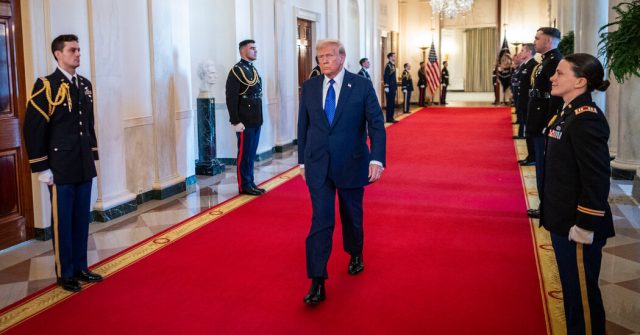The contrast between Hegseth and Joe Biden’s outgoing defense secretary, Lloyd Austin, is profound. Austin, who is Black, served as a battalion commander, a brigade commander, a division commander and Centcom commander before he was selected to lead the Pentagon.
Of course, those qualifications are no guarantee that a person would be an effective secretary of defense, but Austin is vastly more qualified than Hegseth, who was barely confirmed after three Republican senators voted against his nomination. No one should denigrate Hegseth’s service. He served his country honorably in combat operations overseas. But so have hundreds of thousands of other Americans.
If we’re applying the colorblind analysis that Trump allegedly demands, he just downgraded our secretary of defense. He’s promoted an unqualified man to one of the most powerful and important jobs in the United States.
Trump’s cure for D.E.I. isn’t a true meritocracy, but rather affirmative action for the MAGA movement. Providing preferences for populists might be a natural consequence of Trump’s political victory, but it is not an improvement on the status quo.
Some other things I did
My Sunday column took a close look at the morality of the MAGA movement. Why are so many Trump supporters eager to embrace Trump’s cruelty? How did they move from supporting Trump in spite of his flaws to reveling in his aggression?
A good way to understand this terrible political morality is to read Carl Schmitt, a German political theorist who joined the Nazi Party after Hitler became chancellor. I want to be careful here — I am not arguing that millions of Americans are suddenly Schmittians, acolytes of one of the fascist regime’s favorite political theorists. The vast majority of Americans have no idea who he is. Nor would they accept all of his ideas.
One of his ideas, however, is almost perfectly salient to the moment: his description, in a 1932 book called “The Concept of the Political,” of the “friend-enemy distinction.” The political sphere, according to Schmitt, is distinct from the personal sphere, and it has its own distinct contrasts.
“Let us assume,” Schmitt wrote, “that in the realm of morality the final distinctions are between good and evil, in aesthetics beautiful and ugly, in economics profitable and unprofitable.” Politics, however, has “its own ultimate distinctions.” In that realm, “the specific political distinction to which political actions and motives can be reduced is that between friend and enemy.”
The friend-enemy distinction helps explain both the culture of Trump’s supporters and Trump’s actions, now that he’s back in power:
The friend-enemy distinction explains why so many Republicans are particularly furious at anti-Trump dissenters — especially when those dissenters hold conservative values. In the friend-enemy distinction, ideology is secondary to loyalty.
You see this principle at work in Trump’s decision to pardon or commute the sentences of the Jan. 6 rioters and to revoke Secret Service protection from one of his former national security advisers, John Bolton, and from one of his former secretaries of state, Mike Pompeo. Friends can get away with violent crimes. Bolton and Pompeo publicly criticized Trump, and now they’re enemies who have to pay the price.




